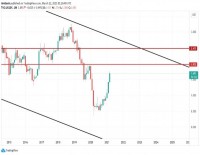|
Since it's commercialisation in the 1970's, Islamic finance has rapidly gained acceptance worldwide. In particular, the Islamic investment sector has experienced exceptional growth with Dow Jones, FTSE, MSCI and S&P jointly offering hundreds of Islamic equity indices. The collapse of several conventional financial institutions during the infamous Global Financial Crisis has placed the spotlight on the Islamic financial sector which was able to demonstrate stability during the crisis. To better understand the reasons for performance differences between conventional and Islamic assets, one needs to understand the expectation of Islamic investments. Islamic funds managers are expected to invest in assets that comply with Shari'ah principles and are therefore halal. Islamic law prohibits investment in businesses that deal with interest-bearing financing organisations, produce or sell alcohol or pork-related products, and ammunition. Therefore, like socially responsible investment, Shari'ah compliant investment refuses to only pursue profits. Very recently, a study by Hoepner, Rammal and Rezec (2009, see reference link) analysed the financial performance and investment style of Islamic equity funds from 20 countries in five regions (Africa, Asia-Pacific, Europe, Gulf Cooperation Council, and North America). The study sampled a period of two decades and is based on the performance of 262 equity funds, which makes it, by far, the largest analysis of Islamic funds to date. (Previous studies had at most investigated 60 funds). Specifically for the purpose of investigating and comparing the performance of Islamic funds around the world, the authors extend Carhart's famous four factor model (1997, Journal of Finance) and developed a three level Cahart model (12 factors). This model simultaneously assesses the financial performance of assets at the national, regional and global level and thereby allows to compare Islamic funds from different nations (e.g. Saudi Arabia and US) and different regions (e.g. GCC countries, North America) in their ability to deliver abnormal risk adjusted financial returns. The findings of Hoepner et al 's (2009) study reveal that, in Western markets, Islamic equity funds appear to trail their equity market benchmark returns on average. Furthermore, Western Islamic funds are significantly exposed to a small stock preference. In contrast, Islamic funds from countries with a significant Muslim population neither underperform their equity market benchmarks nor experience a small cap preference. These results has some economic intuition for two reasons: First, Muslim countries have more Shari'ah compliant business activities and hence Islamic fund managers have fewer restrictions in terms of companies and industries they can invest in. Second, larger, more diversified companies have a higher risk of receiving intolerable degrees of revenue from prohibited activities especially in Western countries. This second explanation can fairly be expected to drive Islamic funds' preference for small cap stocks. Finally, the study also finds some evidence that the pattern of investment in assets with a low debt to equity ratio may help explain the strong performance of the Islamic financial sectorduring economic downturns. As Islamic funds tend to avoid investing in high risk assets (due to uncertainty or gharar) they tend to be less affected during economic crises than investments in high risk/high return assets. This evidence is not only important for Islamic fund managers but also points conventional fund managers to the opportunities to hedge their portfolios against crises by investing in Islamic funds. In summary, Hoepner et al. (2009) find evidence supporting the view that Islamic investors from predominantly Muslim countries (i.e. GCC countries and Malaysia) do not sacrifice financial returns by investing actively in line with their religious principles. Even more, they find some evidence that Islamic investors in some countries (e.g. Bahrain, Saudi Arabia) experience a superior protection against overall equity market losses. Acknowledgements: We welcome questions, comments, or general enquiries regarding our study or this short review. You can contact the authors contact the author via email. We are very thankful to Eurekahedge and Style Research Limited for provision of the data, on which our study is based. The views expressed in our study and this short review are not necessarily shared by the Principles for Responsible Investment.References: Carhart, M. M. (1997) "On persistence in Mutual Fund Performance." Journal of Finance, 52 (1): 57-82. |
Opalesque Islamic Finance Intelligence
Industry Snapshot: Islamic Mutual Funds: Reviewing their Financial Performance and Investment Style Around the World by Andreas G. F. Hoepner, Hussain G. Rammal & Michael Rezec |
|





 RSS
RSS








